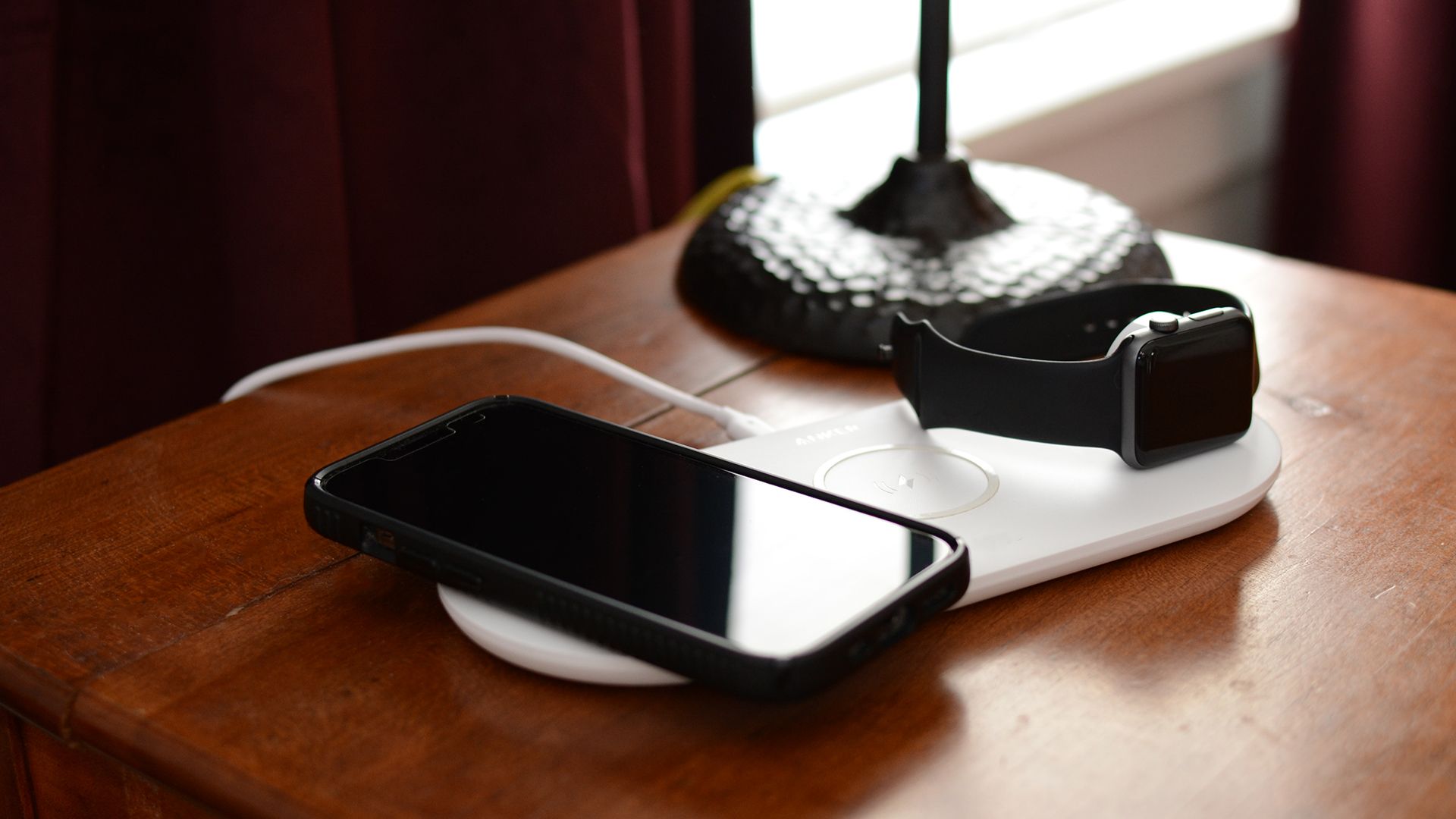Quick Links
Wireless charging is really convenient, but is it bad for your phone's battery to charge it wirelessly? Here's why people worry about it and whether or not their worries are justified.
How Does Wireless Charging Work?
To understand where people's concern over wireless charging comes from, we need to talk first about how wireless charging works.
When you charge your phone the traditional way, with a USB charging cable, a low-voltage current is passed from the charger to the phone over the wires. When you charge a wireless-charging compatible phone with a wireless charging pad, there is still a charger and wire.
But the wire goes to the pad and not to the phone. Instead, when the pad is activated by the presence of a compatible device a magnetic coil inside the pad begins emitting a low-power magnetic field. That field interacts with a similar coil inside the back of your phone and which converts the magnetic energy generated by the charging pad's coil back into electricity to charge the phone.
Wireless charging has been on the market for years now. The technology was invented in 2008 but didn't appear in commercial products for a few years. The first phone to support wireless charging, the Nokia 920 Windows Phone, was released back in 2012. That same year the Samsung Galaxy S3 supported wireless charging (but you needed an adapter accessory). The first Galaxy to support wireless charging out of the box was Galaxy S6 in 2015. Apple added wireless charging to the iPhone lineup with the release of the iPhone 8 and iPhone X in 2017.
Does Wireless Charging Damage Your Phone Battery?
Where does the concern over wireless charging and battery health come from? Wireless charging isn't 100% efficient, and a portion of the energy used to activate the base coil and the phone coil is lost to the environment as heat energy.
If you feel the back of your phone while charging it with a regular wall charger, a wireless charging pad, or a fast charger, you'll likely feel a difference in temperature. Charging with a regular 5W (or less) phone charger will barely warm your phone, and it might be difficult to detect the difference depending on the ambient temperature of the room.
Charging with a wireless charger will usually generate enough heat that you'll notice a bit of warmth when you pull your phone off the charger. And fast chargers will typically generate enough heat that it might give you pause at how toasty the back of the phone is when you pick it up.
As far as phone manufacturers are concerned, all three experiences are completely normal and within the expected operating parameters of the phone. In its wireless charging documentation, Apple notes that your phone might feel warm, but if it gets too warm, it will automatically limit the charging process. Samsung documentation echoes the same thing: if your Samsung phone heats up while charging, it will stop charging.
In so far as wireless charging generates a tiny but measurable amount of heat beyond using a "slow" USB wall charger would, you could argue that wireless charging is technically aging your battery and damaging it.
Stepping beyond arguing technical minutia, however, in the real world, there isn't a lot of evidence for this damage. There are so many other variables at play, like how often you run your battery down and recharge it, the operating environment, and so on, that it's difficult to isolate wireless charging as a single factor in battery health decline.
For example, phone manufacturers will tell you that exposure to temperatures above 95F can permanently degrade phone battery health. Yet millions of people use their phones in environments with an ambient temperature above 95F all the time. Just walking around on a sunny summer day with your phone in your pocket will get it above that temperature. Charging it in a house on a scorching day without air conditioning will get it above that temperature. Leaving it on the phone cradle in your car will get it above that temperature.
In the grand scheme of things, your phone getting slightly warm while wirelessly charging is barely a ripple compared to the other things your phone is exposed to.
Should You Stop Wirelessly Charging Your Phone?
Perhaps you read the last section and are considering switching from wireless charging to only slow charging your phone at night with a wired charger. You could do that, and theoretically, you might keep your battery health a percent or two higher than it otherwise would have been for a few months longer.
But we'd hardly recommend it if you enjoy using wireless charging. The idea that you can keep your phone battery in perfect health forever is a myth.
The battery in your phone is consumable, like the tires on your car. You wouldn't leave your car in the garage to avoid eventually replacing the tires, and you shouldn't baby your phone to avoid eventually replacing the battery. You should stop worrying about your phone's battery and just enjoy it.
The reality is you'll likely replace the phone before the battery is significantly degraded in the first place. And if you don't replace the whole phone, a replacement battery will run you around $50-100.
Considering you likely won't reach the point where you're considering a battery replacement until you've owned the phone for 2-3 years (or more), that's a modest fee to keep a nice smartphone in service for another 2-3 years while charging it however you wish.

